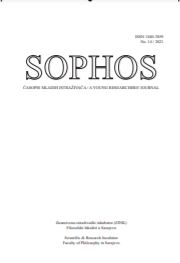RAZLIČITA LICA POSTSOCIJALISTIČKOG URBANOG RAZVOJA: ISKUSTVA IZ BEOGRADA
DIFFERENT FACETS OF POST-SOCIALIST URBAN DEVELOPMENT: EXPERIENCES FROM BELGRADE
Author(s): Nikola JocićSubject(s): Government/Political systems, Social development, Rural and urban sociology, Economic development, Transformation Period (1990 - 2010), Present Times (2010 - today)
Published by: Filozofski fakultet u Sarajevu - Znanstveno-istraživački inkubator
Keywords: post-socialist transition; urban development; urban transformation; Belgrade; Savamala; New Belgrade;
Summary/Abstract: Due to the tragic developments that followed the country's disintegration in the early 1990s, the post-socialist transition in the former Yugoslavia was delayed compared to the countries of Central and Eastern Europe. The emerging comprehensive political, economic, and social changes have also affected the urban space through physical and social manifestations, initiating urban transformation. The paper analyses the post-socialist urban development of Belgrade with examples from two parts of the city with different historical heritage, social development, and urban functions. The inherited characteristics of the observed urban units, as well as the current political and socio-economic changes, have created opportunities for the differentiation of development trajectories. Urban dynamics have been examined over the last few years, and thus, the mechanisms and participants leading the current urban processes in Belgrade have been identified. These mechanisms are not exclusively related to Belgrade but are often present in other post-socialist urban environments, especially in the cities of the region.
Journal: Sophos- časopis mladih istraživača
- Issue Year: 2021
- Issue No: 14
- Page Range: 107-128
- Page Count: 22
- Language: Serbian

